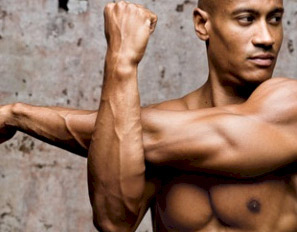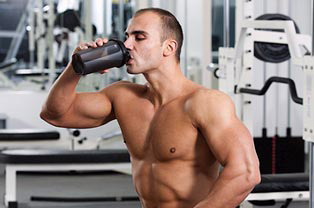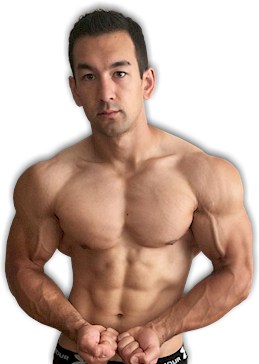DOES MUSCLE SORENESS MEAN GROWTH?

You know the feeling…
You wake up in the morning after a good hard chest workout to that familiar (and usually pleasurable) feeling of muscle soreness.
It’s the sign of a job well done. A battle where you emerged victorious. All you have to do now is rest up, get your nutrition in and your chest is guaranteed to grow.
… Or is it? Does muscle soreness mean growth?
It’s known as “Delayed Onset Muscle Soreness”, or “DOMS” for short.
No one is even 100% sure what causes it. The most likely answer is that it’s a sign of damage to the connective tissues and not even the muscle tissue itself.
One thing IS for sure though…
Muscle soreness from working out doesn’t mean jack-squat in terms of a successful training session.
If you’re looking to get the most out of your muscle building workouts, this is something you definitely need to keep in mind.
All it means is that SOME level of damage has been done within the muscle. But it certainly DOESN’T mean that that damage is going to translate to an increase in muscle size and strength.
There are many activities, some totally un-related to bodybuilding, that could make your muscles feel very sore. Endurance training, sports, running… hell, get up out of your chair right now and do 1000 jumping jacks and tell me how your legs feel tomorrow. You can be sure you’ll be extremely sore, but that doesn’t mean you’re going to gain muscle from it.
In addition, there are many things that will influence how sore or not sore you feel after a workout. This includes training experience, whether or not you stretched, supplementation etc. There are simply too many possible factors to name.
So, does muscle soreness mean growth? Absolutely not.
If you want a gauge for the success of your muscle building workout, you need only look to 2 things…
How To Truly Gauge The Success Of Your Workout

1) Did you train with a high level of intensity by taking every set to concentric muscular failure or very close to it?
2) Did you improve upon your previous week’s performance by either adding more weight to each exercise or performing more reps?
If you can answer “yes” to both of those questions, then chances are that your workout got the job done.
Progressive overload is THE key factor that determines whether or not you consistently gain new muscle mass week after week.
Treat that principle with the utmost respect, and forget about irrelevant factors such as muscle soreness after working out, “feeling the burn” or getting a muscle pump… 2 other issues that I’ll cover in future videos.
If you found this article helpful, make sure to sign up for your FREE custom fitness plan below...




